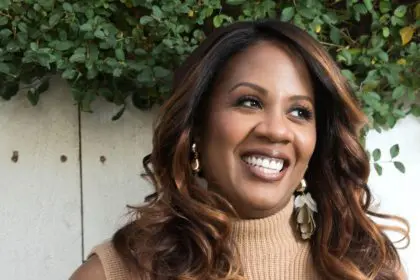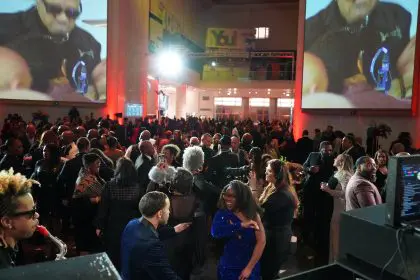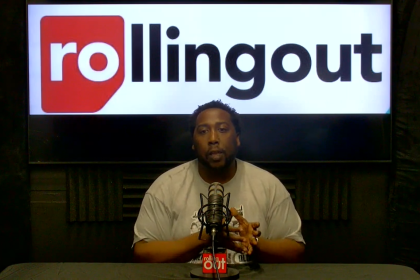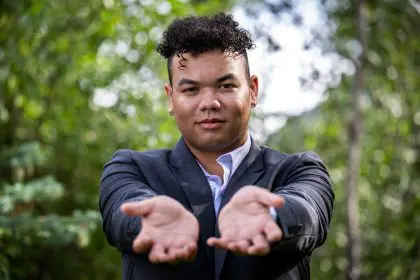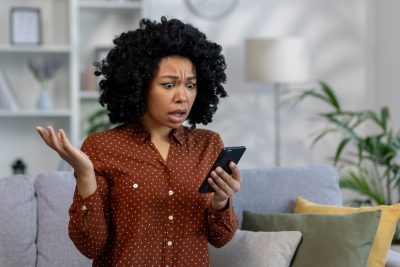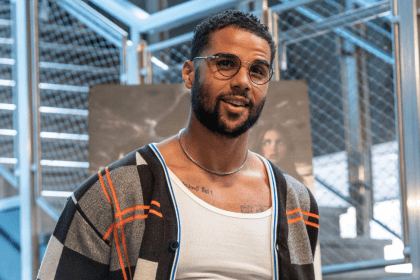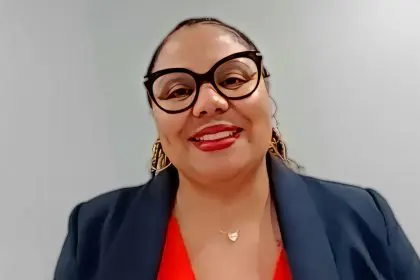lleen and Jaclyn are friends. At least, that’s what one would like to believe — judging by their chummy interactions as co-workers in the office of a Chicago surgeon. But as the story at the center of Rasheeda Speaking unfolds, it becomes clear that these kinds of relationships are never that cut-and-dried when filtered through the complex dynamics of race in the workplace. Starring Oscar-winner Dianne Wiest as Ileen and Tony Award-winner Tonya Pinkins as Jaclyn, Rasheeda Speaking is written by Chicago playwright Joel Drake Johnson and directed by Cynthia Nixon (“Sex and the City”).
Presented by The New Group, this off-Broadway production pushes buttons and plays with its perspective, but mostly hits its targets when examining how the relationship between two women who are “friendly but not friends” begins to strain when the doctor they work for admits he doesn’t particularly care for the Black woman he’s hired. Dr. Williams convinces Ileen to keep a record of everything Jaclyn does wrong in an effort to build his case for firing her, putting Ileen in an uncomfortable spot, especially after the perceptive Jaclyn realizes she’s being scrutinized.
“To really do this character well I have to reveal the part of myself that I spend most of my life suppressing,” Pinkins told the New York Times, and her performance as the frustrated Jaclyn is a brilliant combination of sternness and vulnerability. In revealing Jaclyn’s pain and her pride, Pinkins exposes what so many African Americans wrestle with in the form of casual racism from White colleagues, associates and friends. West’s Ileen is an excellent counterpoint, naive to both her own bigotry and the prejudices of those around her, West’s injects the character with a certain degree of obliviousness without turning her into an innocent. The interactions between these two form the soul of the story, and it is powerfully engaging to watch two actresses of such grace and nuance deliver this sometimes-comical, sometimes-uncomfortable tale.
This is Nixon’s debut as a director, and she delivers an assured production. The two leads are perfectly cast, but Rasheeda Speaking also benefits from excellent pacing and tone. But some of the more sitcom-ish moments never feel forced or uninspired — this production knows exactly what it’s trying to say. And Nixon uses silence very effectively throughout the play, helping ratchet up the already-tense proceedings or offer a moment of quiet respite — depending on the situation. Johnson’s story understands that these people aren’t caricatures, and it makes it hard to view anyone as the real “villain” of this story (though Dr. Williams makes a very strong case). But Rasheeda Speaking is honest about the difference between personal bigotry and the power of authoritative racism, with Jaclyn’s job on the line due to her boss’ disapproval of her.
Jaclyn’s own prejudices (she’s not fond of the troubled Latino family next door) is set against what she encounters in the workplace and on her daily bus commute; Ileen’s surface sweetness is undercut by the insincere ways in which she interacts with Jaclyn after getting a promotion from the doctor. West’s Ileen is representative of the latent racism that so many White liberals enable and deny; but Darren Goldstein, as Dr. Williams, serves to represent a more overt kind of racism. With his complaining about Jaclyn’s inability to “fit in” and her attitude problems and his desire to have someone who doesn’t make him “uncomfortable,” Dr. Williams reveals that most racism isn’t always manifest as outwardly malicious acts, but still factors into how those in positions of influence see others and can affect their lives.
When an elderly patient dismisses Jaclyn’s haughtiness as “cultural” because Black people behave aggressively as “revenge for slavery,” the claim is so ridiculous that the audience can’t help but laugh. But it’s the sort of uneasy laughter that accompanies a bitter truth; and the truth is, everyone watching will recognize that kind of ignorance all-too-easily. Our perceptions of race inform virtually every aspect of our culture, and Rasheeda Speaking does a great job of peeling back the polite surface to reveal the darker biases that most of us would just rather not acknowledge. We most definitely see color.
Even reactions to the story have been slanted along racial lines. Johnson has stated that many White spectators have identified with Ileen and viewed Jaclyn as the story’s villain; while many African American women have thanked him for sharing their experience onstage. Pinkins revealed in that same NYT interview that her White husband rarely agrees with her on matters of race. “He’s intolerant of me saying that I’m discriminated against, that there’s any racism,” she said. “It’s a fight we have.”
“Rasheeda Speaking” is playing at Pershing Square Signature Center, 480 W. 42nd St.
100 minutes, no intermission.
Through March 22.





